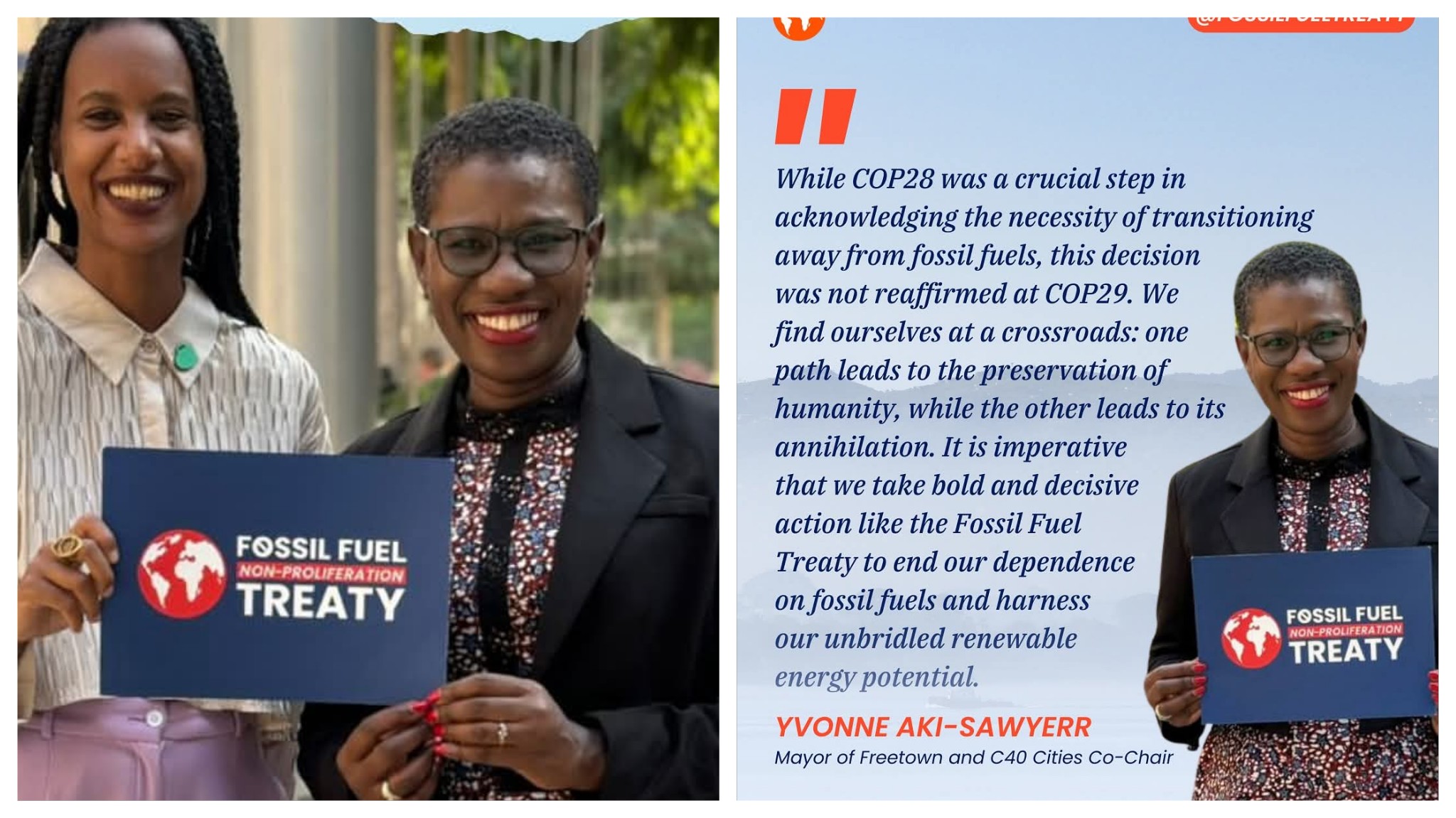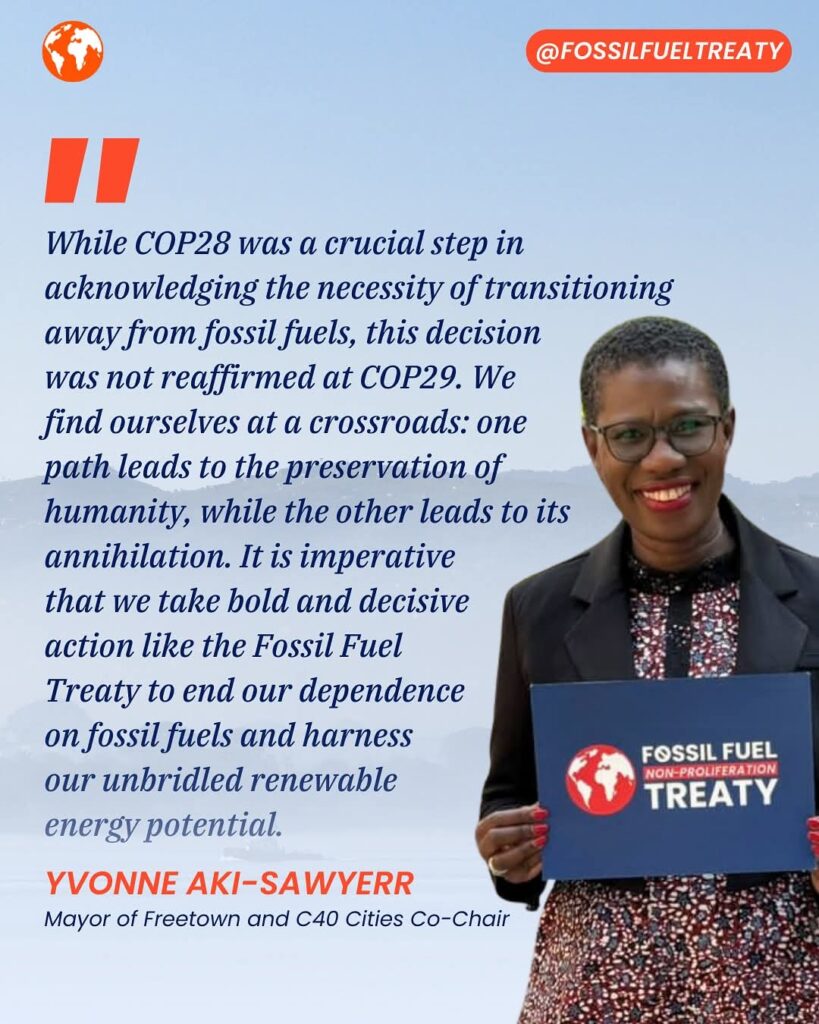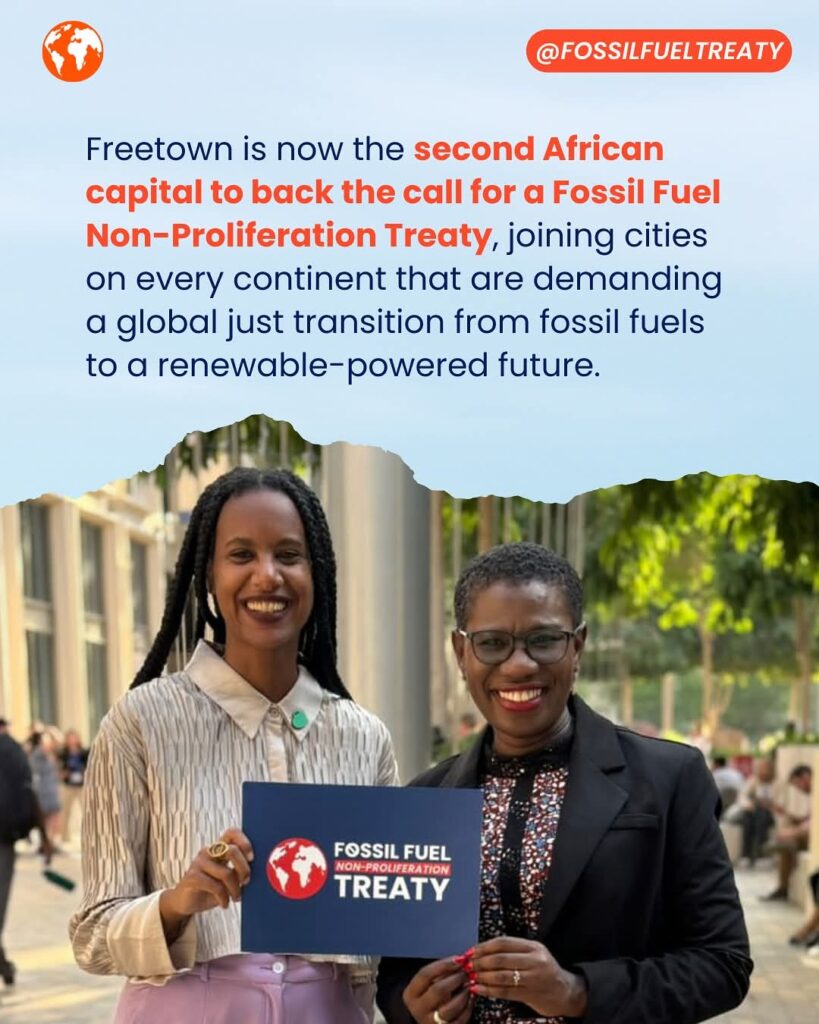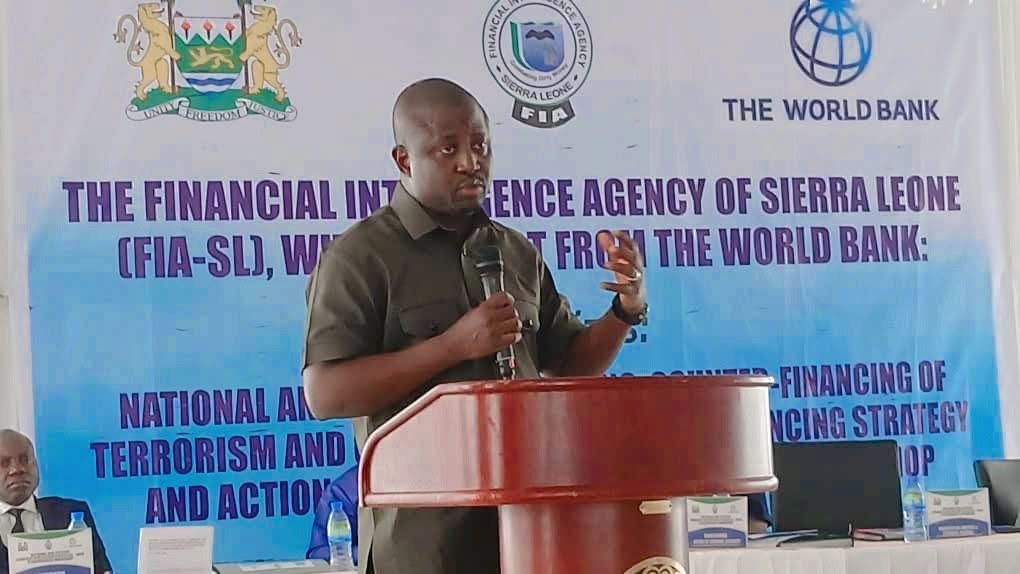
Freetown has made history as the second African city to endorse the Fossil Fuel Non-Proliferation Treaty, a global initiative aimed at transitioning from fossil fuels to renewable energy sources.
The endorsement, announced on December 10, 2024, places Freetown among over 120 cities and subnational governments worldwide advocating for a just and sustainable energy future.
This landmark decision builds on Freetown’s recent climate action achievements, including the launch of its first-ever climate action strategy and the appointment of Africa’s first heat officer.
Mayor Yvonne Aki-Sawyerr highlighted the urgency of addressing the global climate crisis, emphasizing the vital role African cities can play in driving a just energy transition.
“African cities are dynamic hubs of economic activity and innovation. We must lead the charge in the global fight against fossil fuel dependency,” Mayor Aki-Sawyerr stated.
As co-chair of the influential C40 Cities network alongside London’s Mayor Sadiq Khan, Aki-Sawyerr has positioned Freetown as a prominent voice in the global push for climate justice.
Mark Watts, Executive Director of C40 Cities, praised Freetown’s bold stance, describing it as a courageous step in challenging the fossil fuel industry’s dominance. He urged wealthier nations to take responsibility for phasing out fossil fuels and to support cities in the Global South with the resources needed for a greener energy transition.
Social justice activist Karim Bah commended Freetown’s endorsement, drawing a parallel between the city’s historic role in abolitionist movements and its current fight against fossil fuel dependency. “This decision echoes Freetown’s legacy of standing against exploitation,” Bah remarked, noting the alignment of the treaty with global calls for an inclusive transition to renewable energy.

The Fossil Fuel Non-Proliferation Treaty has garnered widespread support, including endorsements from over 3,500 institutions, 3,000 scientists, 101 Nobel laureates, and numerous youth groups, indigenous communities, and faith-based organizations. Seble Samuel, Head of Africa Campaigns at the Fossil Fuel Non-Proliferation Treaty Initiative, stressed the importance of confronting the fossil fuel industry’s exploitative practices in Africa while leveraging the continent’s renewable energy potential.
The treaty’s core ambition is to phase out fossil fuels equitably, prioritizing wealthier nations while providing financial and technological support to developing regions.
Fadhel Kaboub of Power Shift Africa emphasized the need for strategic investments that align with Africa’s green industrialization agenda under Agenda 2063.Freetown’s endorsement also resonates as a statement against the neocolonial economic structures that have perpetuated inequalities across Africa.

With its abundant renewable energy resources, the continent is poised to redefine its development path and lead the global shift toward sustainable energy solutions.
By endorsing the Fossil Fuel Non-Proliferation Treaty, Freetown has reaffirmed its commitment to climate justice, signaling its readiness to tackle the climate crisis and inspire other cities to follow suit in the transition to a sustainable and equitable energy future.



